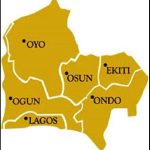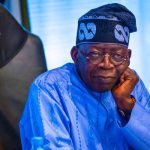
Former Mayor of Portlaoise, County Laois in the Republic of Ireland, Rotimi Adebari, speaks to IMOLEAYO OYEDEYI on why the Federal Government should quickly appoint new envoys for the country, and how the government can halt the spate of killings of Nigerians abroad, among other issues
Since September last year when it withdrew all Nigerian ambassadors in foreign countries, the current administration of President Bola Tinubu has not appointed new envoys for Nigeria in about 76 countries of the world. Some observers have said having no one to manage Nigeria’s diplomatic image abroad poses serious implications. How true can this be?
This is a good question that I will suggest that Mr President or his spokespersons should be asked. It will be interesting to hear from them their reasons for not appointing new ambassadors, knowing the importance of ambassadors in foreign countries. Just to be the devil’s advocate for a second; could it be that the present administration in the background is reviewing Nigeria’s presence in some countries vis-a-vis the cost of running the offices juxtaposing all of that with benefits if any that Nigeria is deriving in those countries?
I can recall, I think two years back when the then Speaker of the House of Representatives, Femi Gbajabiamila, while meeting with the then Foreign Affairs Minister, Geoffrey Onyeama, described the challenges of Nigeria’s foreign missions as poor funding, filthy environment, poor working conditions, and crumbling infrastructure.
Gbajabiamila made these assertions at a time when he lacked the executive power to implement changes he would like to see at foreign missions, but now as the Chief of Staff to the President with executive power influence, I think, now is the time to turn the fate of our foreign missions around, to be honest. I will not subscribe to what some observers are saying that “having no one to manage Nigeria’s diplomatic image abroad poses serious implications.”
It is good to have ambassadors in place, but in their absence, the Charge de Affair keeps the foreign missions going. The government needs to act fast and decide if they want to cut down on over 100 foreign missions that we currently have.
What do you think Nigeria stands to gain by having quality representation in some major countries abroad?
There are several benefits to gain by having quality representation in major countries abroad; the benefit ranges from diplomatic representation, facilitating trade and investment opportunities, and economic cooperation, fostering people-to-people diplomacy and promoting cultural exchange, providing assistance to Nigerian citizens living or travelling abroad, collaboration on global issues which includes climate change, health and security, promoting tourism and attracting foreign investments. In a nutshell, quality representation will enhance Nigeria’s global presence, promote the nation’s interests, and fosters cooperation with other countries.
How can effective foreign relations fetch investment opportunities for Nigeria?
Effective foreign relations can create an enabling environment for investment, driving economic growth to Nigeria through building strong relationships with other countries, which can lead to investment agreements and treaties. It can also be through organising trade missions and exhibitions that showcases Nigerian products and services in a bid to attract foreign investors.
It will also bring about collaboration with other countries on economic projects and initiatives that attract investments. Positive diplomatic engagements will improve Nigeria’s image and make it more attractive to investors. Diplomatic efforts can resolve investment hurdles, such as regulatory issues or trade restrictions.
In appointing fresh individuals to head Nigeria’s foreign missions and embassies, what will be your advice to President Bola Tinubu?
I am very positive that President Tinubu is very knowledgeable about who should be appointed to head our foreign missions. Having said that, I would advise him to consider appointing individuals with a strong background in diplomacy, international relations, or a related field. He should appoint individuals with a deep understanding of the host country’s culture, language, and politics, people with strong communication and negotiation skills that are essential for building relationships with foreign governments and stakeholders.
The President should also pick individuals that are well versed in his (President Tinubu’s) foreign policy priorities and Nigeria’s national interest. They must be people with a high level of integrity, a strong reputation and commitment to ethical conduct. They should be individuals that are sensitive to cultural differences with the ability to navigate diverse cultural contexts.
According to reports, about 300 Nigerians have been killed extrajudicially in foreign countries in the last seven years. What do you think may be responsible for this and what can Nigerian embassies abroad do to stem the tide?
The reports about 300 Nigerians losing their lives due to the incidence of extrajudicial killings is so sad, alarming, and disturbing. From my professional experience and living abroad, I attribute such killings to racism and xenophobia, poor understanding of Nigerian culture, traditions, and customs, lack of effective communication and support from Nigerian embassies, inadequate documentation and record-keeping, limited access to legal representation and justice.
To address the above likely causes of extrajudicial killings, I expect Nigerian embassies abroad to play a critical role in protecting the lives and well-being of Nigerians by providing support and assistance to Nigerians abroad, including legal aid and consular services.
The embassies should also engage in diplomatic efforts to promote understanding and address racism and xenophobia. They should establish a database to track and document cases of extrajudicial killings as well as organise cultural events and programmes to promote Nigerian culture and foster greater understanding.
Our embassies should also collaborate with host countries to investigate and prosecute perpetrators of extrajudicial killings. It will also be good for them to develop a 24/7 emergency response system for Nigerians in distress and engage in public diplomacy to raise awareness about extrajudicial killings and advocate for the rights of Nigerians abroad.
Many Nigerians are reportedly struggling to survive abroad, yet the rate at which the japa syndrome rises is alarming as people leave Nigeria in droves yearly. But why can people end up suffering abroad despite leaving Nigeria with high hopes?
The fact that many Nigerians are reportedly struggling to survive abroad does not discourage others from migrating. It tells us that something is not right somewhere; either at home or abroad.
Migration is an age long phenomena, and it is never going to go away. Nigerians are migrating in droves yearly due to economic hardship, the desire to enhance quality of life for themselves and their families, better opportunities for work or education, unemployment, or underemployment, etc.
Several reasons contribute to the struggles faced by Nigerians abroad, despite their high hopes when leaving Nigeria. Some of these reasons include insufficient knowledge about the host country’s culture, language, beliefs, and job market, overestimating the ease of finding work, and accommodation, unclear or unstable immigration status, leading to difficulties in accessing basic services.
It also include inadequate education, training, or work experience, culture shock and adaptation: struggling to adjust to new ways of life, climate, culture, food, and customs and beliefs, facing discrimination and racism in employment, housing, and everyday life, and falling victim to fraudulent schemes or human trafficking leading to exploitation and abuse.
Recently, there have been calls for Nigeria to return to either the parliamentary system of government or republican constitutional governance. Do you think this will solve the country’s political and socio-economic problems?
I am an advocate of Nigeria returning to the parliamentary system of government, a system that will grant the regions the right to self-government and develop at their own pace. The United Kingdom style of parliamentary system of government with self-governing political powers to the different nations (England, Wales, Scotland, and Northern Ireland) that make up the country called UK, in my opinion is a perfect fit for Nigeria.
Nigeria shares similar peculiarities with the United Kingdom. I want to believe that it was because of this that they left us with a parliamentary system of government at independence. The British left Nigeria with a country consisting of three nations (the western region, the eastern region, and the northern region), with each region sharing similar culture, beliefs, etc, and a self-governing political entity, having its own parliament with a Premier as the head of the regional governments. This is pretty the same with what operated in the United Kingdom at the time, and still in operation till today.
What Nigeria needs to do this time is to tweak the system we inherited from the British to address our today’s reality. The six geo-political zones we have now, in my opinion, can be structured along regional lines of old and make them nation-states with self-governing political entities. We will still have a united nation called Nigeria with six nations. Can you think for a second for Nigeria to have six countries participating in the world cup preliminaries? In case you don’t know, that is what the United Kingdom does. I think we shot ourselves in the foot with our so-called federalism.
Without a doubt, Nigeria’s political and socio-economic problems are complex and multidimensional. The challenges require other essential reforms and efforts to address them. As against the presidential system that we are currently practising, parliamentary system in other climes have been found to promote accountability where the Prime Minister and cabinet are directly elected by the populace and are accountable to the National Assembly. This reduces the risk of authoritarianism.
Also, members of the National Assembly are more connected to their constituents, ensuring grassroots perspectives are represented. The parliamentary system encourages coalition-building and cross-party collaboration. It reduces presidential powers and improves governance through a collective leadership approach that can lead to more inclusive and effective decision-making. With emphasis on collective responsibility, the parliamentary system will foster stronger institutions and a more robust democratic culture.
You were reported to have said that greedy politicians won’t allow Nigeria to return to the parliamentary system of government. Does that mean the people (masses) no longer have the power to determine what they want for their country?
For us to return to the parliamentary system of government, the political class must buy into it. Do you see the political class doing that when they know that they may not retain a seat in the limited elective positions that will become available? That is the greed that I was referring to. The question that I will like the political class in Nigeria to ask themselves is: if they are politicians or statesmen?
There is a bill presently at the National Assembly calling for a return to the parliamentary system of government. This bill will give Nigerians the opportunity to know who among our political class are politicians and who are statesmen. It is important to remind ourselves what James Freeman Clarke said about politicians and statesmen; ‘A politician thinks of the next election while a statesman thinks of the next generation.’
The current administration has spent over a year in office. How will you rate its performance and what will be your advice for the government going forward?
I will answer this question by saying this; the foundation of good governance, anywhere in the world, is measured by the following metrics: providing essential services like healthcare, education, infrastructure, and sanitation, enforcing laws, maintaining justice, and preventing chaos. The metrics also include fostering a favourable business environment, encouraging investment, stimulating economic development, ensuring the safety and protection of citizens from internal and external threats, and safeguarding citizens’ fundamental rights and freedoms, such as speech, assembly, and equality.
Others are levying and collecting taxes to fund services and infrastructure development, supporting vulnerable populations, such as the poor, elderly and the disabled as well as overseeing industries, commerce, and social activities to ensure public welfare and safety.
I would like to challenge Punch Newspapers to use its medium to conduct an unbiased opinion poll using the above metrics. The result will be the scorecard of the administration’s one year in office. Trust me, the result you get from such exercise will be more authentic than what any individual comes up to say at an interview of this nature. It is important to speak to artisans, businesses (small, medium, and large), civil servants, market women/men, students, etc and get their perspectives.



